Plight Of Haiti In Pictures
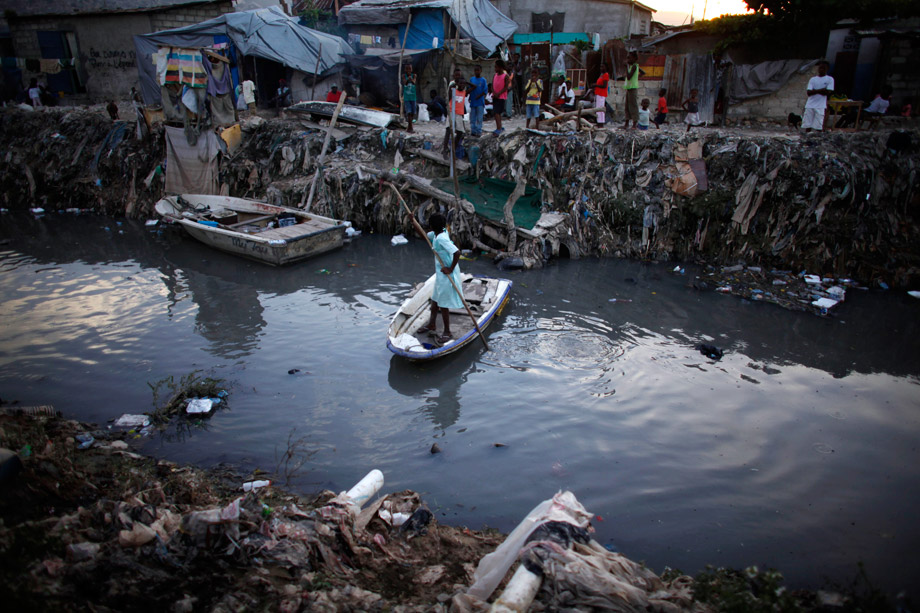
A resident crosses a dirty drain, which leads into the sea at downtown Port-au-Prince, Oct. 29, 2010. The unusually high death rate in Haiti's cholera epidemic is slowing as people become aware of the disease and health experts provide treatment, the World Health Organization said on Wednesday. The United Nations agency's key aim now is to prevent the disease from spreading south to the capital, Port-au-Prince, and the camps for homeless survivors of the Jan. 12 earthquake, from the northern department of Artibonite where it is concentrated.
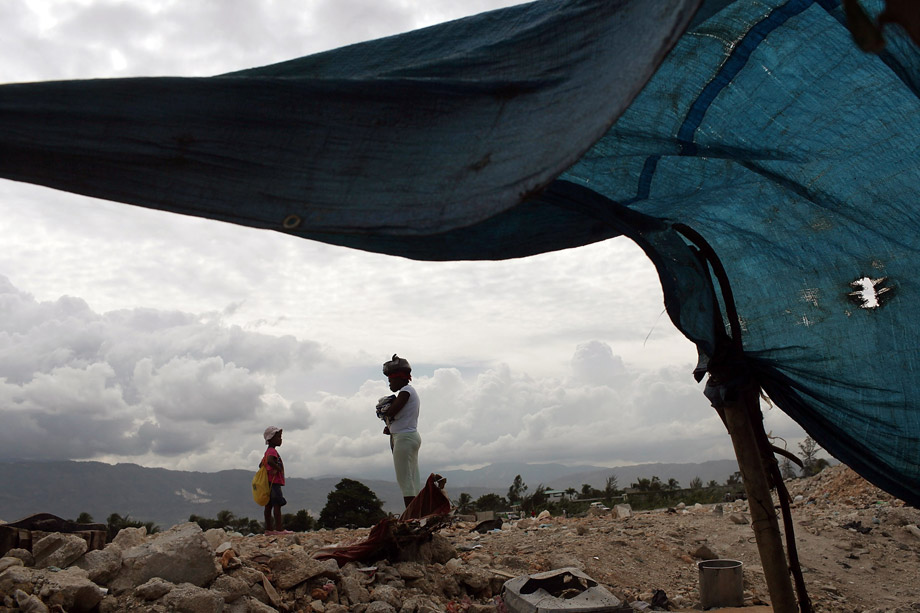
People stand in a tent camp for individuals who lost their homes in the Jan. 12 earthquake, Nov. 3, 2010 in Port-au-Prince, Haiti. More than 1 million Haitians are refugees due to the January's earthquake. Haiti, one of the poorest nations in the Western Hemisphere, has been further unsettled by an outbreak of cholera.
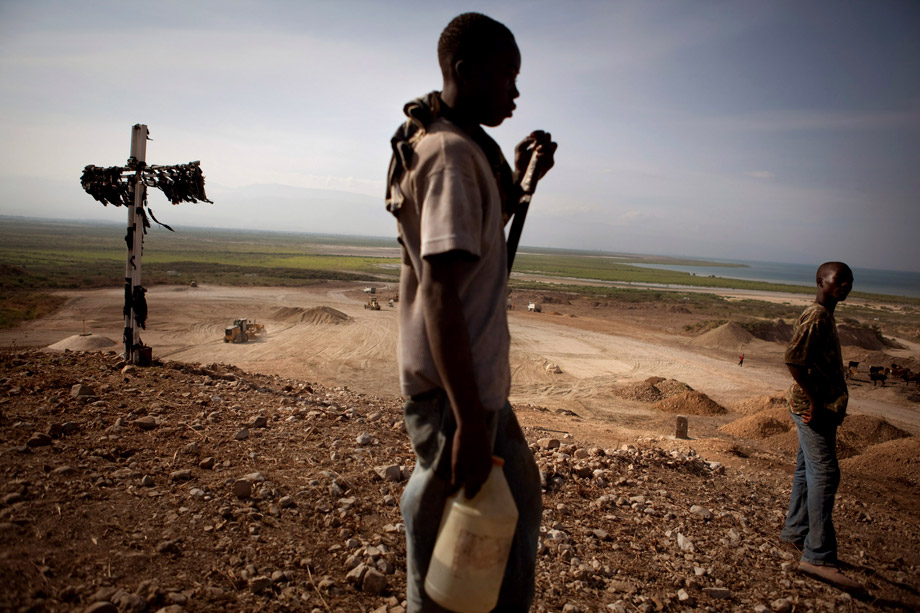
Boys on their way to fill water jugs pause near a cross adorned with black cloth on a hill overlooking a burial site outside Port-au-Prince, Jan. 10, 2011. Mass graves of victims of the Jan. 12, 2010, earthquake and the cholera epidemic are found buried at the site.
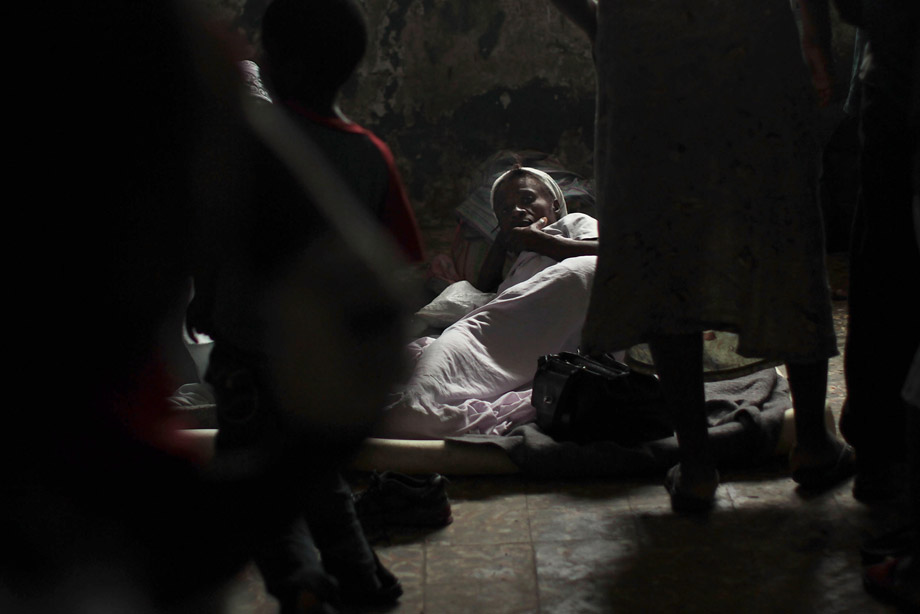
A family lives in a room on the grounds of an abandoned hospital where they and hundreds of others had been evacuated from the Corail-Cesselesse relocation camp, due to Hurricane Tomas Nov. 5, 2010, in Port-au-Prince, Haiti. The storm, which caused some flooding and heavy rains, largely spared Haiti.
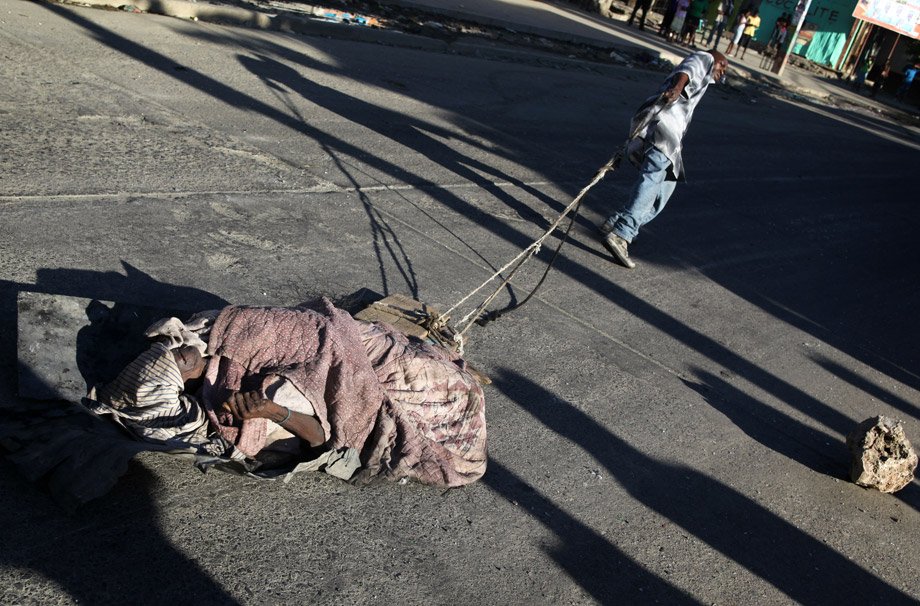
A man drags a dead cholera victim through the streets of Cap-Haitien on Nov. 19, 2010, after four days of riots between demonstrators and U.N. peacekeepers accused of bringing cholera to the country. Preparations for key upcoming elections pressed ahead despite violent clashes with U.N. troops blamed by Haitians for importing a cholera epidemic that has now claimed nearly 1,200 lives.
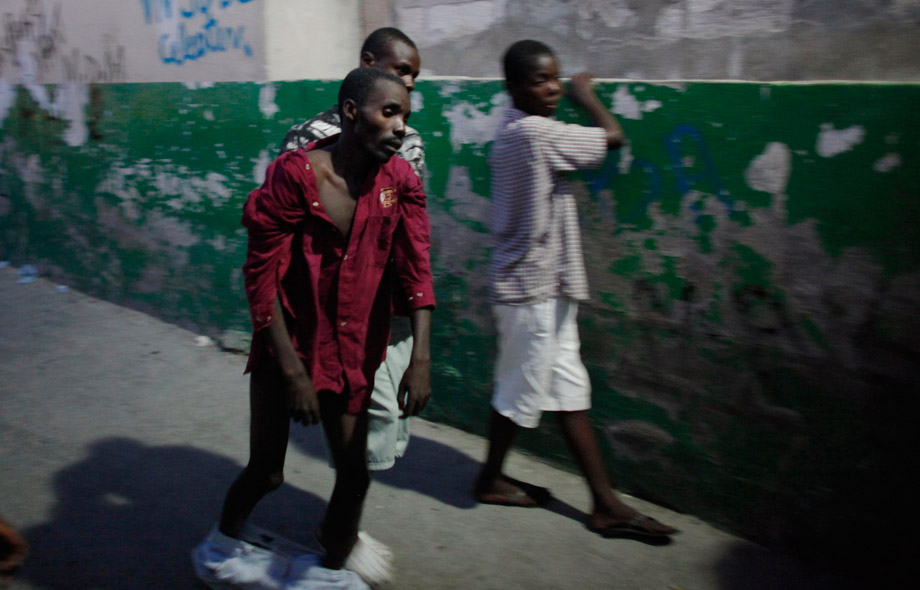
A Haitian with cholera arrives to receive treatment at St.-Catherine hospital in the slum of Cite-Soleil in Port-au-Prince, Nov. 19, 2010. The United Nations-led international response to Haiti's deadly cholera epidemic is "inadequate" and woefully short of funding and aid groups, including the U.N. humanitarian agency.
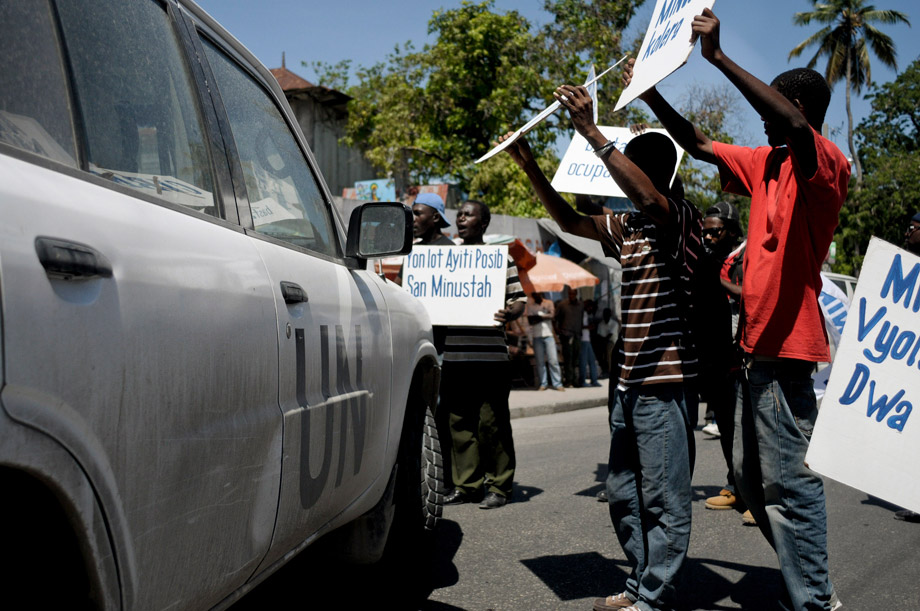
Demonstrators holding placards surround a U.N. vehicle during a protest in Port-au-Prince, July 28, 2011. Protesters said they want justice from the United Nations Stabilization Mission in Haiti (MINUSTAH) after a study by the U.S. Centers for Disease Control and Prevention (CDC) showed that a unit from Nepal might be responsible for bringing cholera into the country, which has killed more than 8,000 people so far.
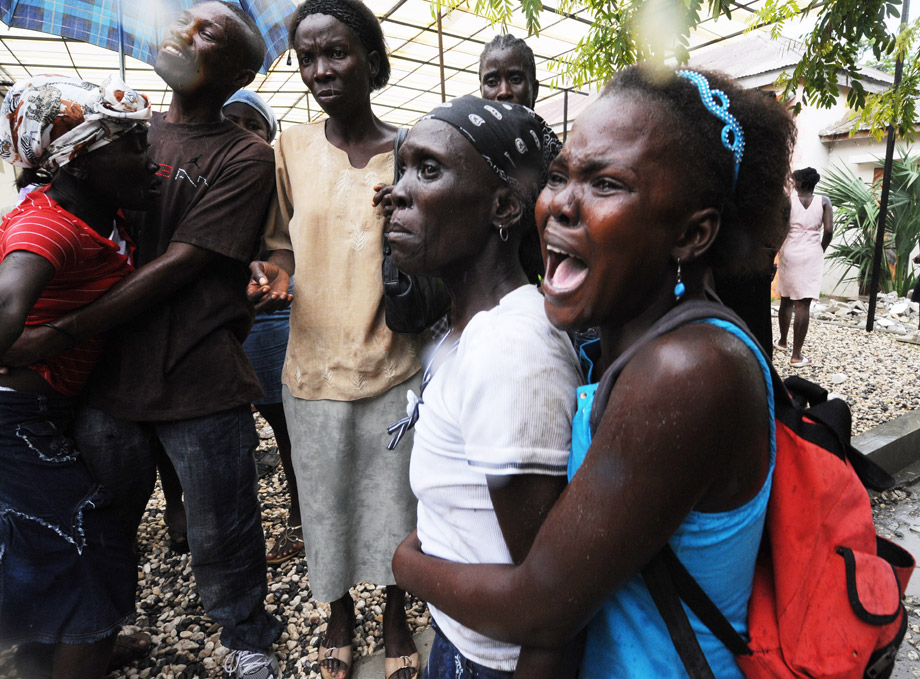
Patients and families wait outside St. Nicolas Hospital on Oct. 21, 2010, in St. Marc, in the north of Port-au-Prince, amid a cholera epidemic that has claimed 135 lives and infected 1,500 people over the last few days. The epidemic has not yet reached the major displaced persons camps in and around the capital, Port-au-Prince, which was ravaged by a 7.0 earthquake in January that left 1.2 million people homeless. But officials fear an outbreak in densely populated tent cities that have poor sanitation and meager medical facilities has the potential of unleashing a public health disaster.
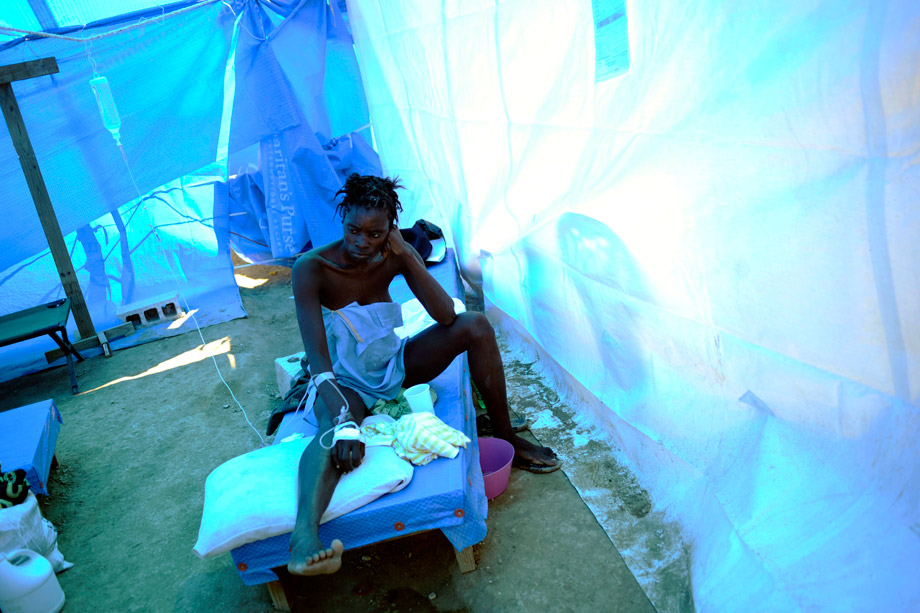
A woman infected with cholera receives treatment in a clinic set up by the aid agency Samaritan's Purse in Cabaret, Haiti, Nov. 26, 2010. A raging cholera epidemic in Haiti may deter some voters from participating in Sunday's national elections, but postponing or canceling the polls could threaten stability in the Caribbean country, the European Union's envoy said on Monday.
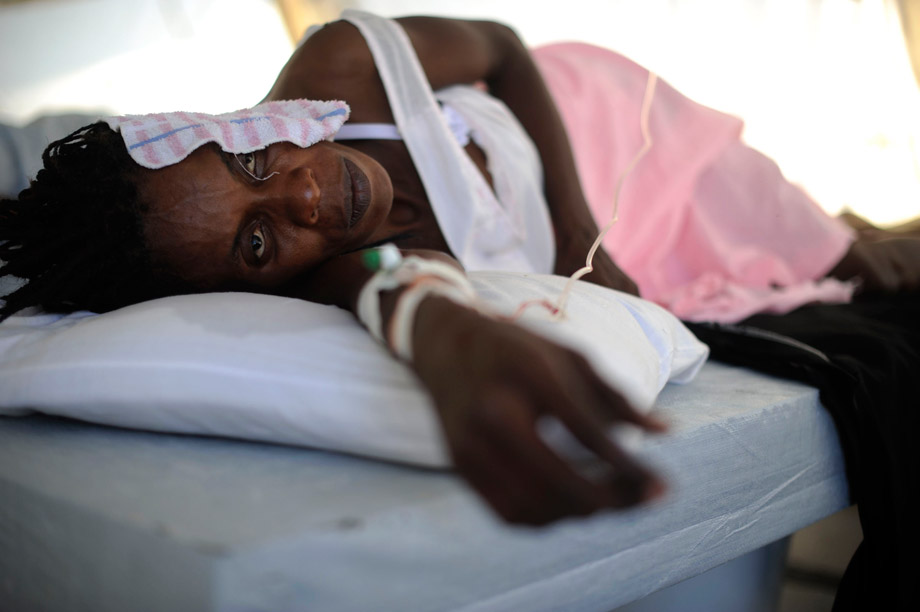
A woman infected with cholera receives treatment in a clinic set up by the aid agency Doctors Without Borders, Port-au-Prince, Haiti, Nov. 26, 2010.
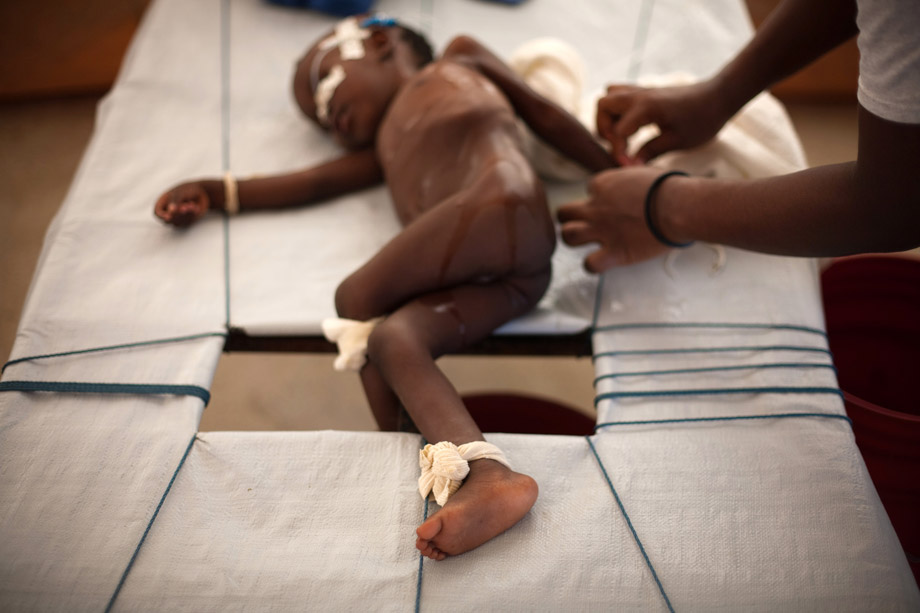
A boy with cholera is unstrapped from his bed during treatment at a cholera clinic set up by Doctors Without Borders in the Tabarre neighborhood of Port-au-Prince, Nov. 19, 2010.
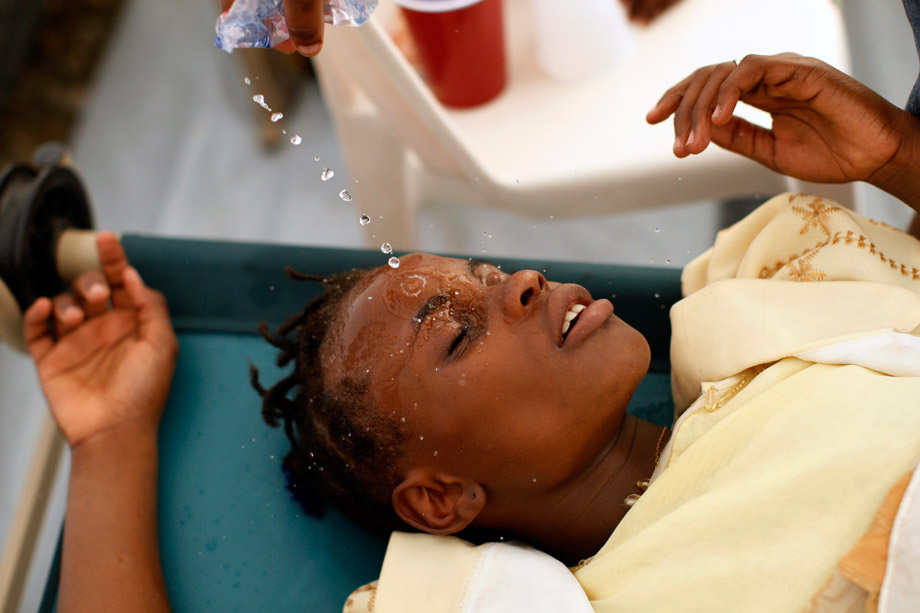
A Haitian girl with cholera symptoms is doused with water at an improvised clinic run by Doctors Without Borders in Port-au-Prince, Nov. 20, 2010.
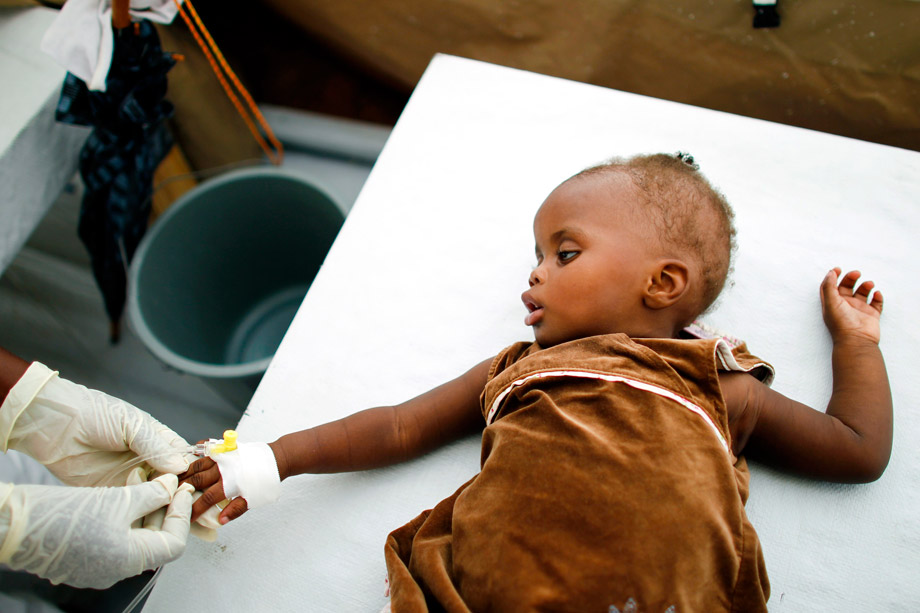
A Haitian girl receives an intravenous drip at a cholera treatment center of Doctors Without Borders in Port-au-Prince, Jan. 10, 2011.
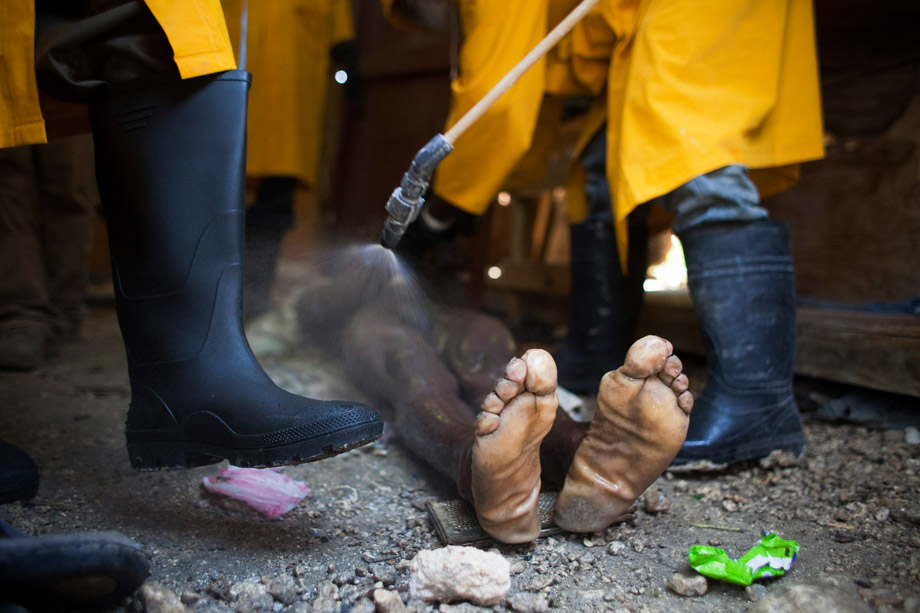
Members of a Haitian Ministry of Health body-collection team spray a mixture of bleach and water to disinfect the body of Nixon Merise, 24, who died of cholera, before removing his body from his home in the Carrefour neighborhood of Port-au-Prince, Nov. 20, 2010.
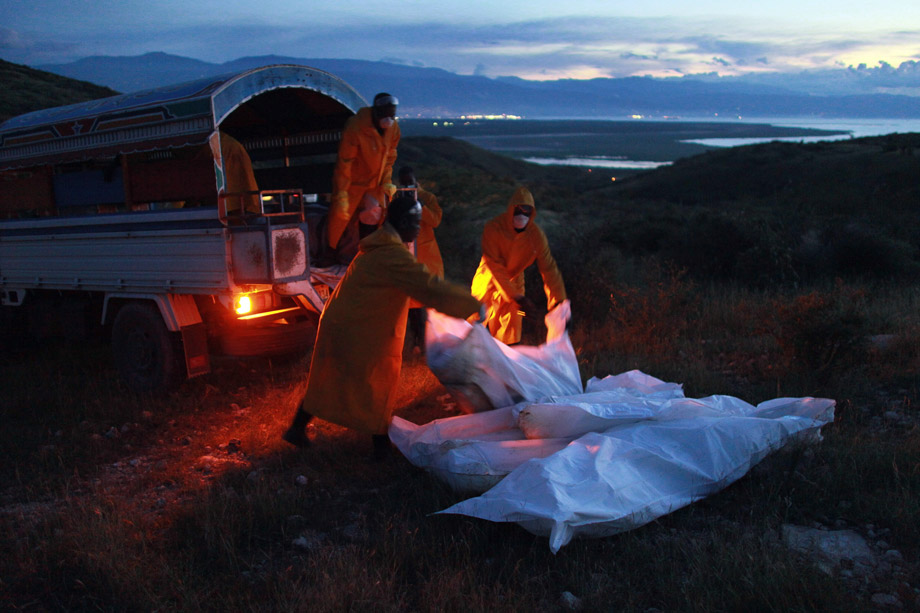
Members of a Haitian Ministry of Health body-collection team unload 14 bodies as they dispose the victims of the cholera epidemic in Titanyen, the site of a mass grave for the victims of the January earthquake, on Nov. 17, 201,0 in Port-au-Prince, Haiti. The bodies had been collected from homes, the street, and a hospital as Haiti's cholera epidemic has killed more than 1,000 and sickened thousands. Unable to find other sites to dispose of the bodies, they ended up at the Titanyen site where, after negotiating with the local mayor, they were able to dump the bodies in anticipation of them being buried. Doctors say poor sanitary conditions after January's earthquake made the country vulnerable to cholera, which is caused by bacteria transmitted through contaminated water or food.
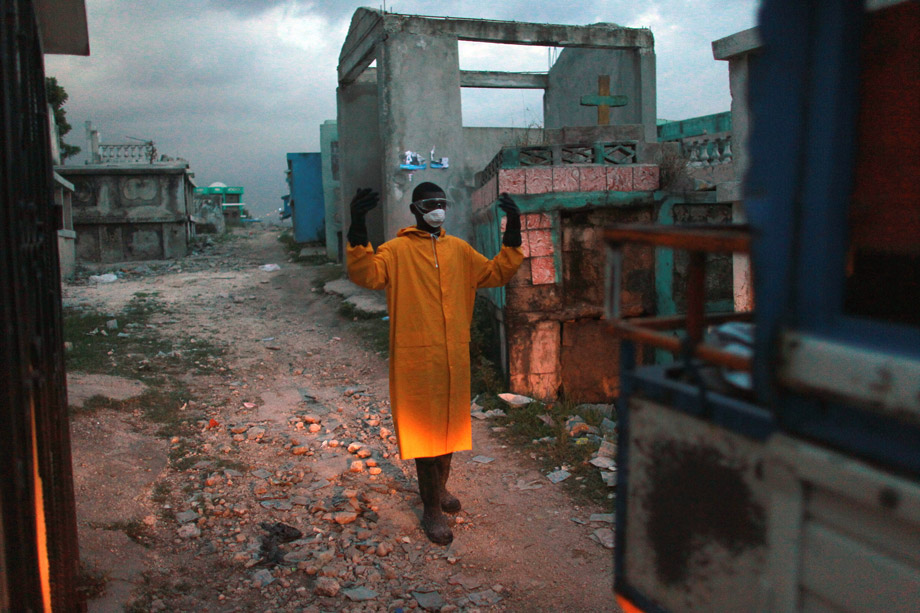
A member of a Haitian Ministry of Health body collection team directs a truck as it backs up to drop off two victims of the cholera outbreak covered in plastic bags at a cemetery on Nov. 16, 2010, in Port-au-Prince, Haiti.
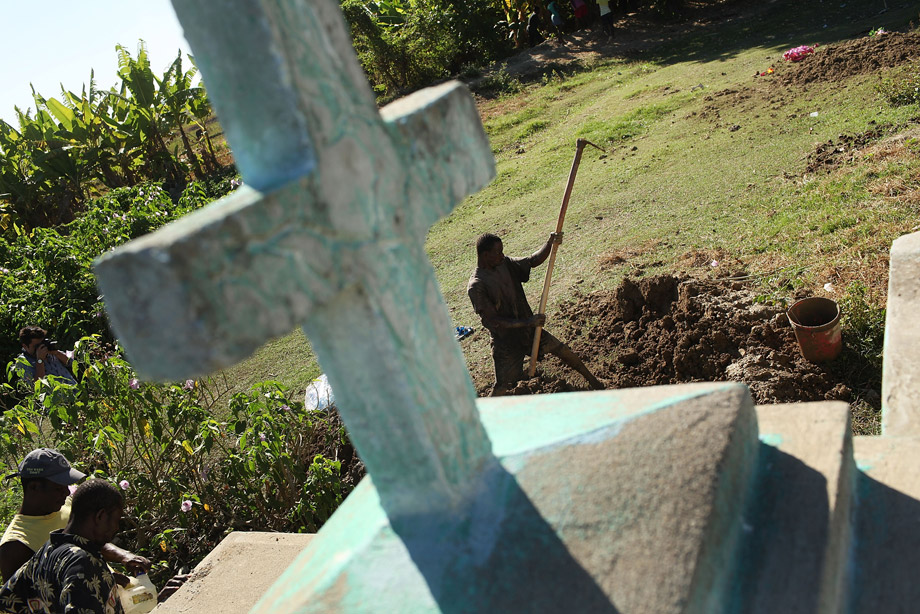
Cemetery workers cover the grave of Serette Pierre, who recently died of cholera, Oct. 29, 2010, in Back D' Aguin, Haiti. Pierre died the same day she contracted cholera, leaving three children without parents. Haiti, one of the poorest nations in the western hemisphere, has been further unsettled by an outbreak of cholera, which has so far killed over 300 people. The epidemic has affected the central Artibonite and Central Plateau regions with 3,612 cases so far on record. Authorities believe the outbreak is contained, but has not yet peaked. There is also fear that the deadly diarrheal disease could migrate to the sprawling camps for the hundreds of thousands of Haitians displaced by the January 2010 earthquake.
Tags:
Replies to This Discussion
"Destroying the New World Order"
THANK YOU FOR SUPPORTING THE SITE!
Latest Activity
- Top News
- ·
- Everything
Orwell - Football, Beer & Gambling
"kalau kamu cari tentang trik dan tips main slot online biar gampang menang, coba cek di situs…"
9 hours ago
I, Pet Goat VI by - Seymour Studios | I, Pet Goat 6
I, Pet Goat VI by - Seymour Studios | I, Pet Goat 6It's time for great JihadI presented the events in the Middle East as an animated short film based on the ...
yesterday
Official Trailer NOVA '78 directed by Aaron Brookner and Rodrigo Areias
NOVA '78 is a documentary about New York City's 1978 Nova Convention, the legendary counterculture gathering featuring William S. Burroughs, Patti Smith, Fra...
Sunday
Peter Sellers - The Party (opening scene)
HQ HD "Does that include television sir ?" ... is still the best trolling paradigm in a movie.Support this channel: https://www.patreon.com/MusicPoints#Pet...
Friday
"Cheeki kea, I pray that the insanity doesn't deepen and there's been an attack by some 18…"
Feb 18
Disgraced Former CNN Anchor Don Lemon Arrested
No longer an employed journalist, Don Lemon had been seen with far left agitator, Nekima Levy…See More
Feb 18
"Good poem for these times. I think it's only going to get worse though as we enter into the…"
Feb 17
© 2026 Created by truth.
Powered by
![]()